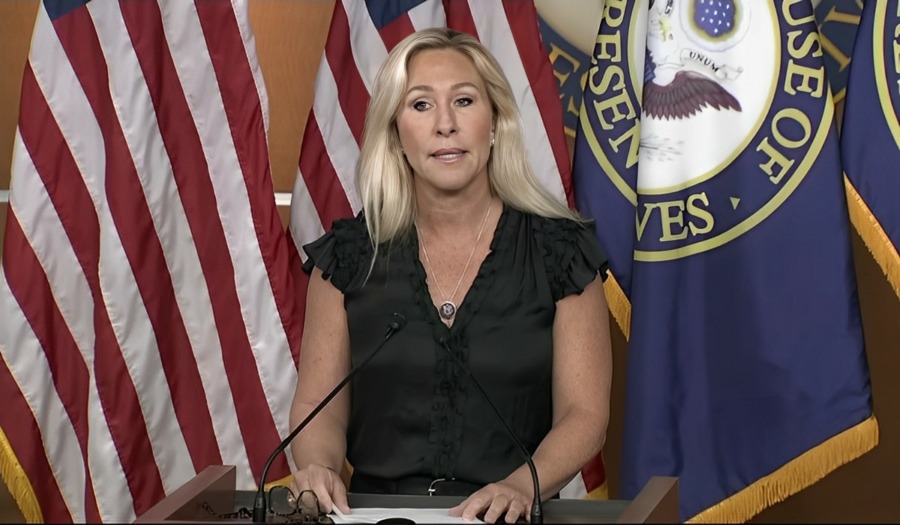The Republican Party, or GOP, faces a conundrum of defining its priorities and navigating internal divisions. One figure who has prominently emerged amidst this turmoil is Congresswoman Marjorie Taylor Greene, who is increasingly referred to as the “speaker by proxy” due to her significant influence over the party’s far-right wing. Greene’s role in supporting current Speaker Kevin McCarthy in his bid for the speakership has led to significant concessions within the GOP, including calls for him to vacate his position. This has raised concerns about the direction and priorities of the party.
One immediate consequence of this internal power struggle is the House’s return to session, where Greene’s primary focus is to attempt to impeach President Joe Biden. She has ardently argued that this should precede crucial issues such as funding the Congress. However, her approach has garnered criticism from members of her party, who are disheartened by what they see as a lack of decorum, intelligence, and the seemingly futile antics of pursuing a Biden impeachment. The reality is that there are not enough votes in the Senate to support such an endeavour, and it faces an uncertain fate even in Congress.
The hesitance of many Republicans to engage in such overtly partisan actions is largely due to their concerns about the upcoming primaries and the 2024 elections. The GOP recognizes the precarious position they find themselves in, given the magnitude of their supporters who have faced legal repercussions, including arrests and convictions for their involvement in seditious acts. This includes prominent figures from former President Donald Trump’s administration who are now facing charges. Even Senator Lindsey Graham’s prospect of being indicted adds to the uncertainty surrounding the party’s future.
Amidst this tumultuous backdrop, the true purpose of Marjorie Taylor Greene’s insistence on impeaching President Joe Biden remains unclear. It appears more as a symbolic gesture than a practical endeavour, perhaps to bolster her standing among her die-hard, ideologically rigid supporters who are impervious to facts and common logic. Kevin McCarthy’s role within the party is that of a subservient proxy, clinging to power with the knowledge that he could be ousted at any moment due to the ongoing internal divisions.
The GOP finds itself at a crossroads, with internal conflicts and external challenges shaping its direction. Marjorie Taylor Greene’s prominence and her push for an impractical impeachment effort reflect the complexities and divisions within the party. At the same time, the looming spectre of legal consequences for key figures further underscores the uncertainty surrounding its future. McCarthy’s role as a cautious steward of party power highlights the fragility of the current GOP landscape.









